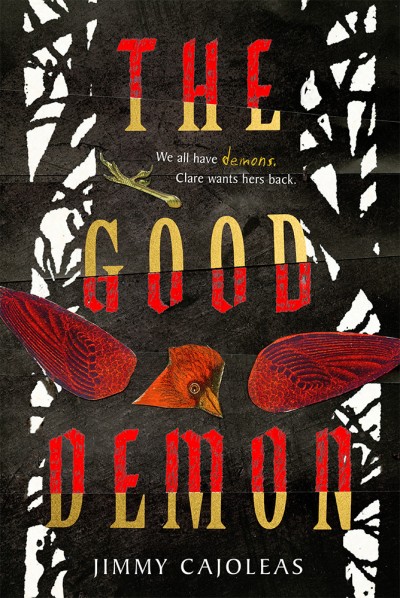Nobody ever asked the little girl from The Exorcist what she wanted. The demon didn’t ask for her consent before taking over her body; but the priests didn’t ask her permission to cast the devil out of her, either. The whole movie is about Regan, and yet we never actually get her story. She has barely any agency throughout, and even the ending robs us of any reaction, concerned as it is with the priest’s self-sacrifice. Regan is not even allowed to remember the incident: she is a perpetual blank slate for the other (largely male) characters to act upon.

In The Good Demon, by Jimmy Cajoleas, the preacher and parents still aren’t asking permission. They assume they know what’s best for Clare, our protagonist possessee, because she’s yet another young woman and they are (largely) men. But this time, it’s Clare’s story. And Clare is pissed—not at the demon, but at all the people who assume they know what she wants better than she does. So she’s not going to simper with gratitude; she’s going to get her demon back.
The demon, only ever called Her, is also female. And She asked permission before occupying a corner of Clare’s soul. She also provided comfort, entertainment, and protection during Clare’s extremely fraught childhood. The two share a love that defies analogy, either familial or romantic; they are, quite literally, soul mates. Separation has sent Clare into deep mourning, but a series of cryptic encounters leads her to believe that she might be able to get Her back. And love will bring her to risk anything—even confronting her town’s possible cult, even investigating a conspiracy that has resorted to both magic and murder—to accomplish what she wants, not what her town thinks is right.
Clare also begins to reluctantly work with the preacher’s son, Roy, who may not be as conservative or judgmental as his father. Their relationship is interesting and certainly did not go or end up where I expected, a rarity in YA. There was some real complication and maturity here, rather than wish fulfillment. I always appreciate that, even if I do also appreciate fluff.
There’s not a lot of fluff here. This book blew through plot points and drama like they were on sale. By halfway through, Cajoleas had already gotten to all the things I thought were going to be the climax, which left the second half largely a mystery. I am thoroughly impressed by authors who go for broke like this, eschewing the predictable outcomes and really pushing their creativity.
Cajoleas has also set up some really compelling feminist conversations about faith, boundaries, and desire. For so many stories about demons, women are possessed spiritually to indicate both their status as both “receptive” and as little more than objects. You can possess an object. What Cajoleas does with his story is assert that you cannot actually possess a person, especially not Clare, a woman who does not just blindly receive what she is given, but decides what she will and will not take. She was a wonderful narrator not just for her vibrancy and boldness, but also because of her vulnerability and curiosity. Clare wasn’t just some Strong Female Protagonist, a stereotype to replace the Damsel in Distress stereotype: she has the full spectrum of contradictions and complexities that any real girl would have. I thoroughly enjoyed watching her grow and fight for her strange and beautiful love.
